
10 Best Research Books For Qualitative And Quantitative Research
Research books are designed to help you improve your research skills and conduct studies more effectively. So, if you’re on the hunt for research materials, check out our collection of the best research books!
Research methodology comes in many shapes and forms. Regardless of whether you are interested in qualitative or quantitative research, it is essential to find a book that can help you plan your research project adequately.
Research design can vary from hard sciences to social sciences, but data analysis following a case study is usually similar. Therefore, you need a practical guide that can help you complete a research project and finish your research paper—interested in this field of topic? You’ll love our round-up of the best books for quantum physics !
1. Qualitative Research: A Guide To Design And Implementation, 4th Edition
2. research design: qualitative, quantitative, and mixed methods approaches, 4th edition, 3. the research methods knowledge base, 3rd edition, 4. the craft of research, 5. doing your research project: open up study skills, 5th edition, 6. qualitative inquiry and research design: choosing among five approaches, 3rd edition, 7. the essential guide to doing your research project, 2nd edition, 8. introducing research methodology: a beginner’s guide to doing a research project, 2nd edition, 9. the sage handbook of qualitative research, 5th edition, 10. research methods in education, 7th edition, popular research books to read.
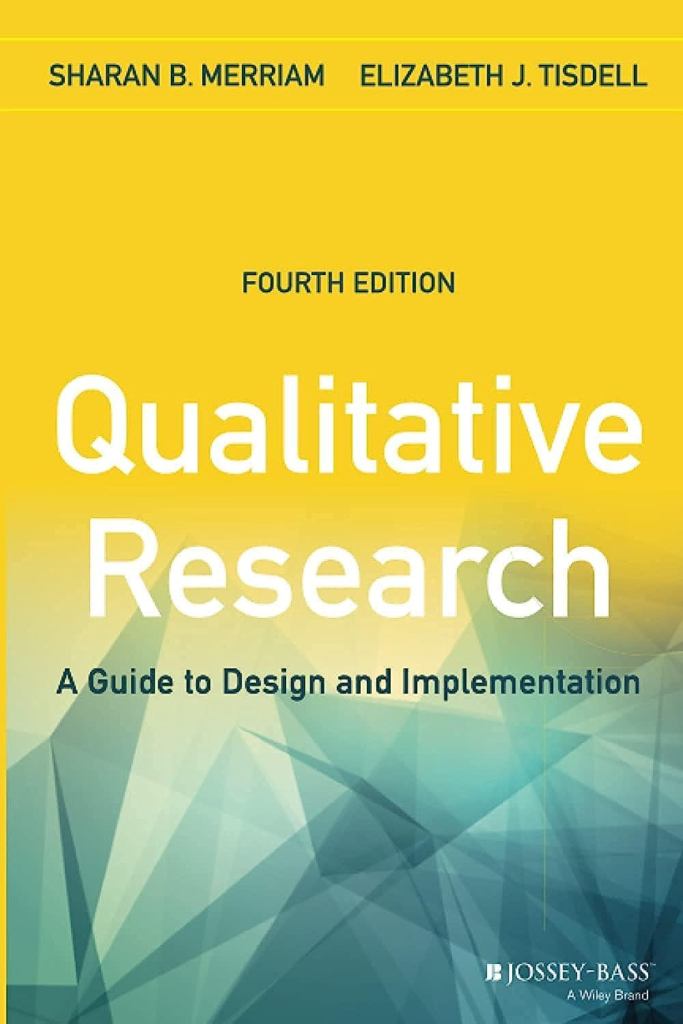
When someone talks about qualitative research in academia, they refer to research that focuses on overall concepts and takeaways instead of complex numbers. For those conducting academic research, understanding the basics of this process is critical. Qualitative Research: A Guide to Design and Implementation , by Sharan B. Merriam and Elizabeth J. Tisdell, 4th edition, is one of the best books available because it focuses on action research, mixed methods, online data sources, and some of the latest technology that people can use to complete their projects.
A significant portion of this book focuses on data analysis software packages, which have become critically important in an era where publishing in the best academic journals is critical for every successful researcher. Finally, this book explains topics so that nearly everyone can understand.
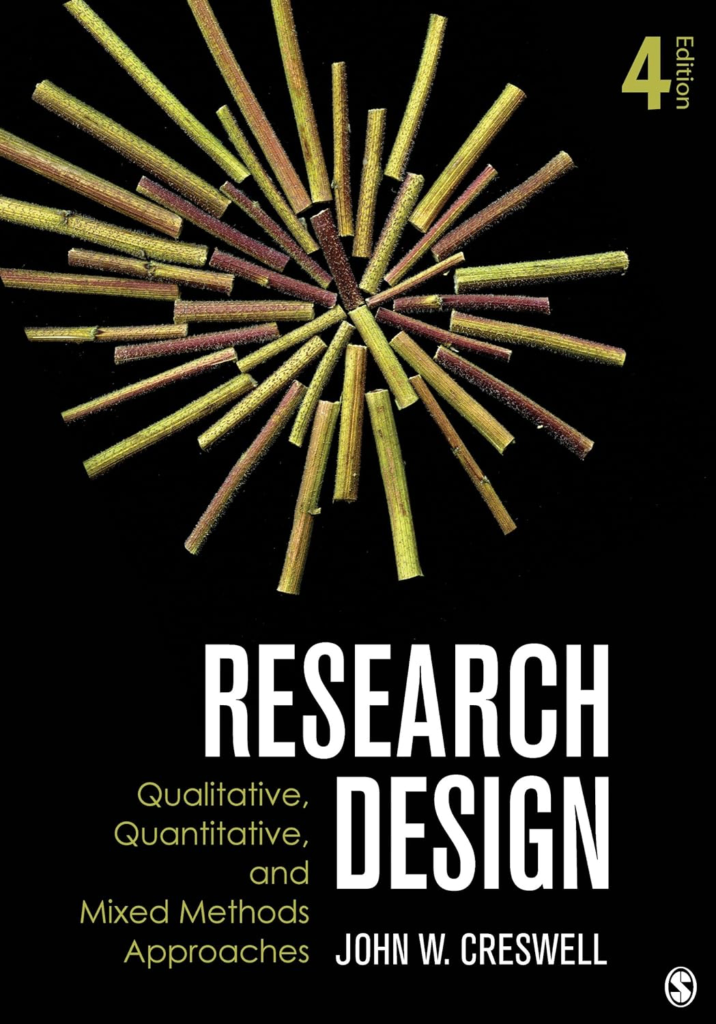
Suppose you are looking for a book that can teach you the best research methodology. In that case, you will want to check out Research Design: Qualitative, Quantitative, and Mixed Methods Approaches by John W. Creswell, 4th edition. John Creswell is one of the most well-respected writers in case study research.
As books on how to research go, this one on quantitative and qualitative research methods is a great tool that will help you learn the basics of forming a research project in every field. This book covers philosophical assumptions and research projects, theory and research approaches, and conducts an effective literature review. These elements are also crucial in helping you form a step-by-step guide for your upcoming research project, and this book will teach you the basics of data analysis.

The first two editions were already solid, but the third edition of The Research Methods Knowledge Base , by William M.K. Trochim and James P. Donnelly, features many updates to quantitative and qualitative research methods, teaching graduate students the basics of data collection before diving into the details for more advanced learners.
One of the significant advantages of this text is that it is a comprehensive tool that can be used for both undergraduate and graduate-level courses. It has a relatively informal style and conversational feel, which means readers will not be intimidated by walls of text. The research methods it teaches are straightforward, applicable, and relevant to anyone looking to complete a research project in the current era.
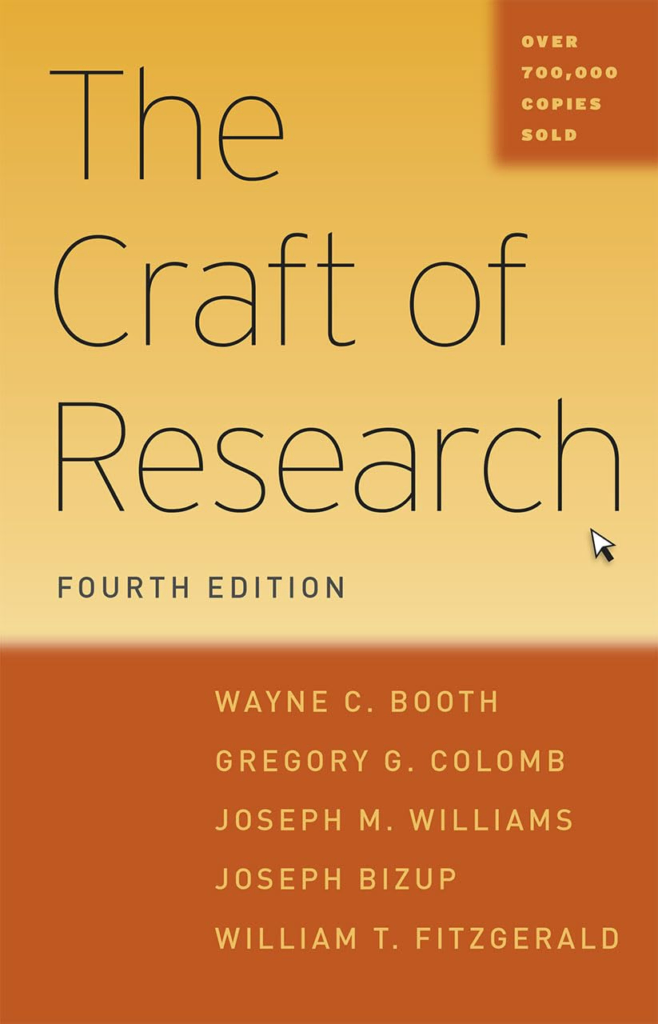
The Craft of Research , by Wayne C. Booth, Gregory C. Colomb, and Joseph M. Williams, covers various research approaches that teach everyone the basics of forming a solid research project. In particular, this book focuses on what to do with the data after it has been collected.
People need to think about how their readers will interpret the structure of the paper, proactively anticipating questions they might have. By answering the reader’s questions in the initial version of the paper, it is easier to hold their attention from start to finish.
Of course, one of the most critical questions that must be asked when writing a research paper is, “so, what? Why does this information matter?” Researchers can keep this in mind while writing the introduction and conclusion of the paper so they will have an easier time constructing a powerful academic manuscript that is more likely to be accepted into the top academic journals.
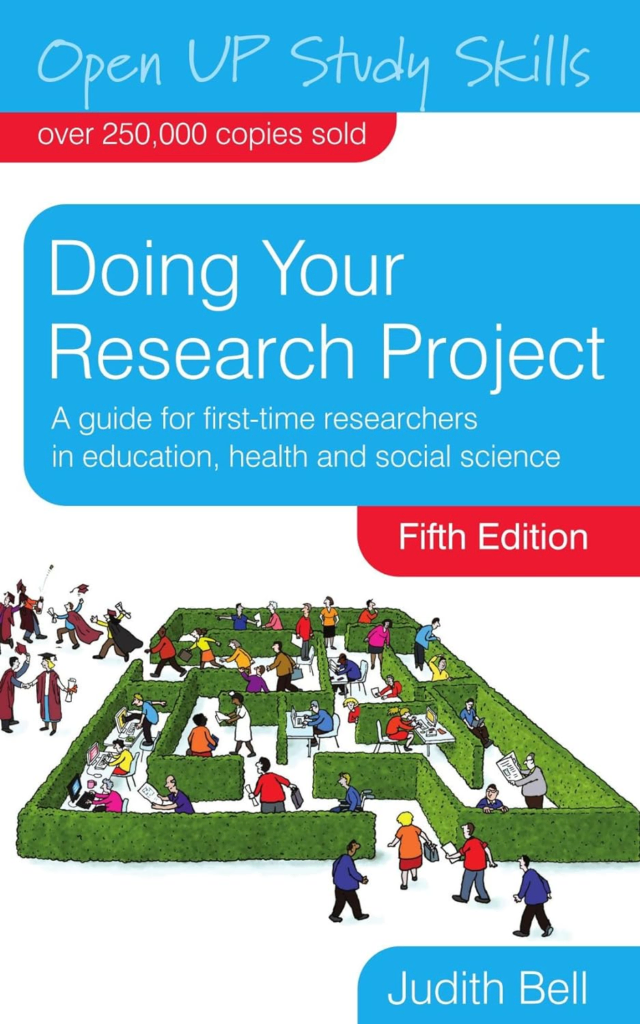
Doing Your Research Project: Open Up Study Skills , by Judith Bell, is a must-read for new researchers looking to make their way in academic research. This book is helpful because it teaches people how to conduct a research project using step-by-step advice. A research project can be daunting for new learners because it’s easy to focus on the final project and feel intimidated before taking the first step.
This book is indispensable because it teaches people everything they need to know to develop a research project, draft a hypothesis, carry out the project, and finalize a research paper after conducting detailed data analysis. Furthermore, this text will dive into common mistakes, pitfalls, and obstacles researchers need to overcome. Time is your most valuable resource, and nobody wants to spend time on trials that will not be relevant to the final project.
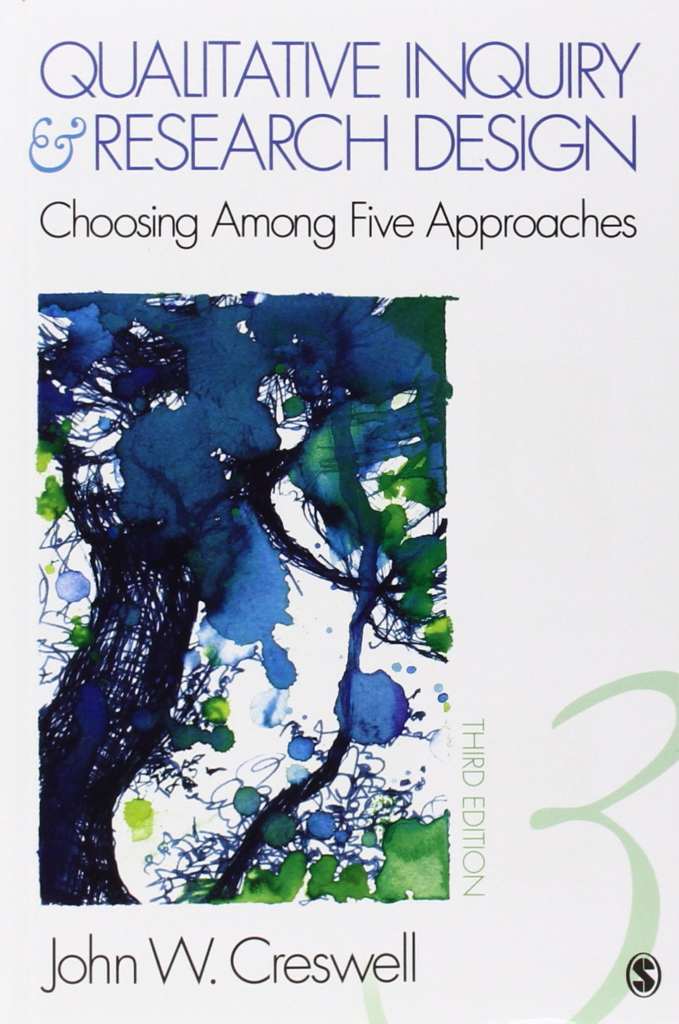
Qualitative Inquiry And Research Design: Choose Among Five Approaches , 3rd Edition, Is The Latest In A Line Of Best-Selling Research Books From Creswell. This Book Ties Into People’s Philosophical Underpinnings When Developing A Research Project. It Also Looks At The History Of Various Research Projects, Which Serve As An Example For The Reader.
Overall, there are five traditions in qualitative research; grounded theory, phenomenology, narrative research, case study, and ethnography. Creswell uses an accessible writing style to help the reader understand when to use each of these narratives. Then, he dives into strategies for writing research papers using each of these approaches.
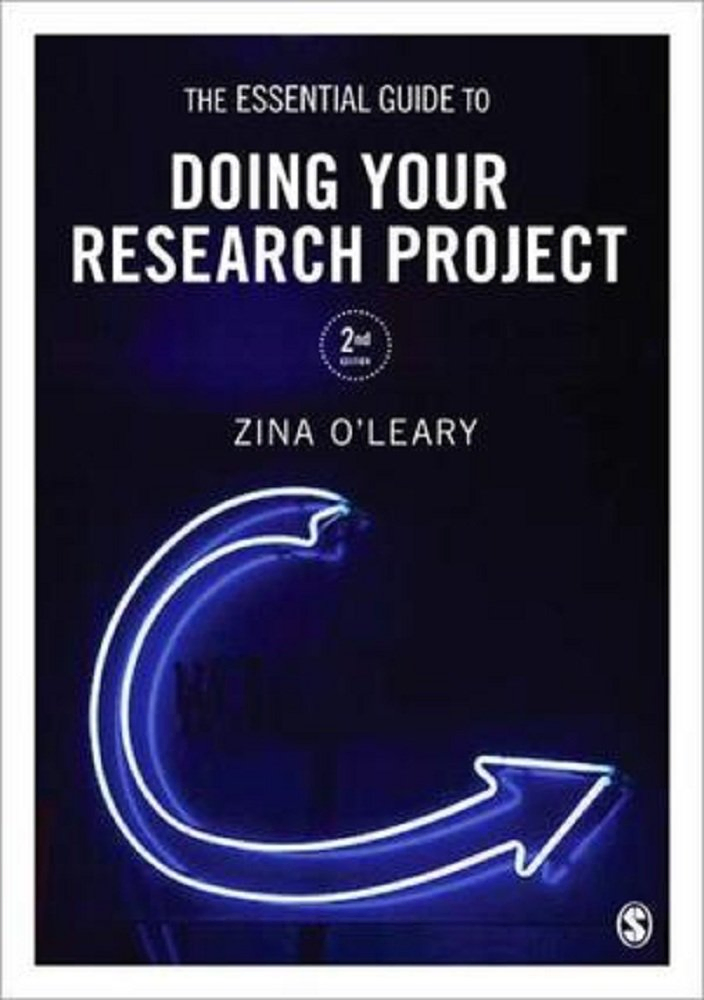
The Essential Guide To Doing Your Research Project by Zina O’Leary is geared more toward young learners. As books on how to research, it focuses on how to develop a research project, analyze data, and write up the results. Every stage of the book is clearly explained, with the author specifying why it is essential to carry out that step correctly.
It also focuses on practical tips and tricks that learners can use to successfully carry out their research projects. The book includes helpful chapter summaries, a complete glossary, and boxed definitions for essential terms that should not be overlooked. The author also has a variety of suggestions for further reading, which is helpful for more advanced learners who may want to pick up a text that is a bit more detailed. Finally, the book also comes with access to a companion website. The website includes journal articles, real projects, worksheets, and podcasts.
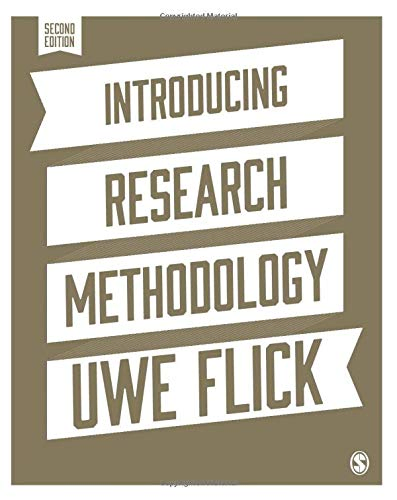
Introducing Research Methodology: A Beginner’s Guide to doing a research project, by Uwe Flick is ideal for new researchers. the author guides readers through the fundamentals that underpin a strong research project. He focuses on essential steps, common mistakes, and ways to expedite the research process.
Then, the author dives into some of the most critical skills readers need to have if they want to collect and analyze data properly. he goes into basic organizational tactics that make data easier to interpret, explains how to shorten the analytical process, and dives into real-life quantitative and qualitative research methods. He uses his research as an example, explaining to people how to pull out the essential parts of the research project before writing them up.
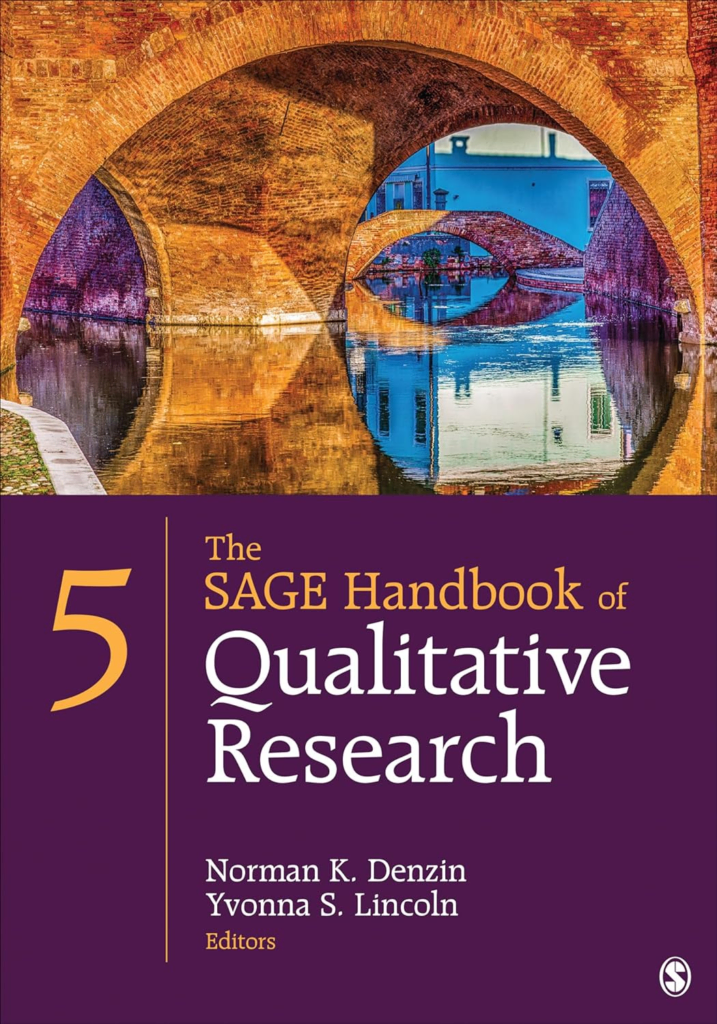
The SAGE Handbook of Qualitative Research by Norman K. Denzin and Yvonna S. Lincoln focuses on global research. This text teaches readers how to synthesize existing literature, identify current research, and focus on caps that can be filled. the authors gather contributions from some of the most well-renowned researchers, addressing issues in research projects today. This text focuses more on research regarding social justice therefore, this is better for people in the social sciences.
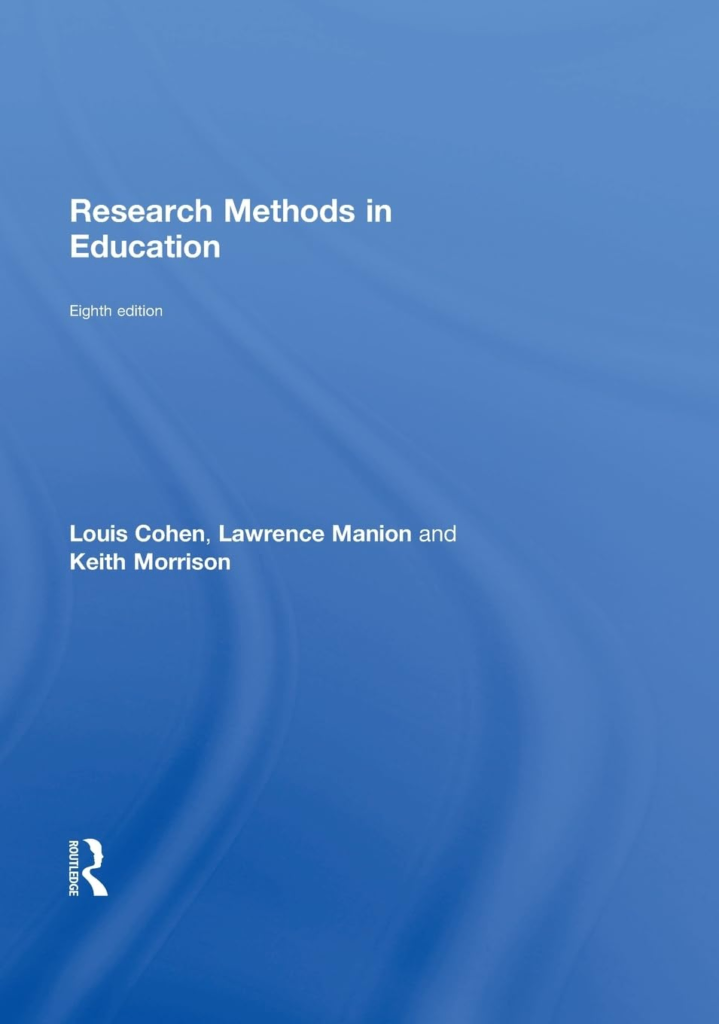
Research Methods in Education , by Louis Cohen, Lawrence Manon, and Keith Morrison, is essential for students and professional researchers who want to learn how to create a comprehensive research project. It’s broken up into helpful chapters wrapped up by a convenient summary at the end, explaining to readers how to hit the high points.
Research Methods in Education also comes with a helpful companion website that contains PowerPoint slides for every chapter. This book can be read independently and discussed with a classroom full of students. The book has been written at a level that is accessible even to high school students, but the basics can be a helpful review for graduate researchers.
Academic research comes in many shapes and forms, with qualitative and quantitative research having high points; however, the basics are the same across all fields. Researchers need to learn how to develop a hypothesis, put together a research methodology, collect their data, interpret it, and write up their findings.
It can be helpful to use the books about research above to refine your research methods . Each book focuses on a slightly different facet of academic research, so readers need to find the right book to meet their needs. With a substantial text, readers can avoid common mistakes, follow in the footsteps of successful researchers, and increase their chances of writing a solid research paper for school or getting their paper accepted into an academic journal.

- Education & Teaching
- Schools & Teaching

Amazon Prime Free Trial
FREE Delivery is available to Prime members. To join, select "Try Amazon Prime and start saving today with FREE Delivery" below the Add to Cart button and confirm your Prime free trial.
- Cardmembers earn 5% Back at Amazon.com with a Prime Credit Card.
- Unlimited FREE Prime delivery
- Streaming of thousands of movies and TV shows with limited ads on Prime Video.
- A Kindle book to borrow for free each month - with no due dates
- Listen to over 2 million songs and hundreds of playlists
Important: Your credit card will NOT be charged when you start your free trial or if you cancel during the trial period. If you're happy with Amazon Prime, do nothing. At the end of the free trial, your membership will automatically upgrade to a monthly membership.
Return this item for free
We offer easy, convenient returns with at least one free return option: no shipping charges. All returns must comply with our returns policy.
- Go to your orders and start the return
- Select your preferred free shipping option
- Drop off and leave!

Download the free Kindle app and start reading Kindle books instantly on your smartphone, tablet, or computer - no Kindle device required .
Read instantly on your browser with Kindle for Web.
Using your mobile phone camera - scan the code below and download the Kindle app.

Image Unavailable

- To view this video download Flash Player

Follow the author

Research Design Simplified: A Beginner’s Guide to Qualitative, Quantitative, and Mixed Methods Research (Mastering Research: Design, Execution, and Publishing Made Simple) Paperback – September 20, 2024
Purchase options and add-ons.
Are you overwhelmed by the complexities of research design? Struggling to choose between qualitative, quantitative, or mixed methods?
This book provides a practical, step-by-step guide to help you navigate the research process, empowering you to design and implement effective studies with ease.
With practical tips, real-world examples, and helpful checklists, this book is your ultimate guide to research success.
Starting a research project can be challenging, especially for those new to academia. For many, the difficulty lies in the complexity of research design methodology and the lack of a clear, step-by-step approach.
This comprehensive guide breaks down the research design process, transforming complex concepts into easy-to-understand steps. It offers practical insights and clear instructions to demystify even the most intricate aspects of dissertation research methods and designing a research study .
Key Features:
- Overcoming Common Challenges: Address the most significant hurdles faced by students in research design, including conceptual, methodological, and practical difficulties in both qualitative and quantitative research methods .
- A Clear and Concise Approach: Navigate the research process with confidence through a step-by-step guide that is ideal for those seeking an intro to research design .
- Practical Tips and Guidance: Benefit from real-world examples and expert advice to guide your research, whether focusing on thesis research methods or broader research design social sciences .
- Comprehensive Coverage: Explore everything from identifying research topics to presenting your findings, ensuring you understand how to design research methods for any study.
- Handy Checklists: Use practical checklists to stay organized and ensure you have covered all the essential steps in your research methodology design .
What You'll Learn:
- Choosing the Right Research Design: Select the most appropriate methodology for your project, whether it involves qualitative methods research design , quantitative methods, or mixed methods research design .
- Formulating Research Questions: Develop clear and focused research questions to guide your study, a crucial skill for any research design book or research methods for beginners .
- Conducting Literature Reviews: Master the art of searching for and analyzing relevant literature to support your research design qualitative or quantitative approaches.
- Data Collection and Analysis: Learn effective techniques for collecting and analyzing data, applicable to both qualitative research and the science of qualitative research .
- Ensuring Validity and Reliability: Guarantee the quality and trustworthiness of your research, whether you're designing a qualitative study or focusing on research design qualitative, quantitative , or mixed methods.
- Presenting Your Findings: Communicate your research effectively through writing and presentations, essential for any research methods book or dissertation research method .
Whether you're a struggling student or simply looking to improve your research skills, this guide provides the support needed to turn your research idea into a successful project. Ideal for those interested in research design for beginners or more advanced topics like mixed methods research , this book is your essential beginner guide for research design and methods .
- Part of series Mastering Research: Design, Execution, and Publishing Made Simple
- Print length 307 pages
- Language English
- Publication date September 20, 2024
- Dimensions 7 x 0.7 x 10 inches
- ISBN-10 9198900889
- ISBN-13 978-9198900880
- See all details

Frequently bought together

Customers who viewed this item also viewed

From the Publisher

Editorial Reviews
About the author, product details.
- Publisher : Muhammad Rafiq (September 20, 2024)
- Language : English
- Paperback : 307 pages
- ISBN-10 : 9198900889
- ISBN-13 : 978-9198900880
- Item Weight : 1.18 pounds
- Dimensions : 7 x 0.7 x 10 inches
- #26 in Education Research (Books)
- #31 in Sociology Research & Measurement
- #44 in Social Sciences Research
About the author
Rafiq muhammad.
Rafiq Muhammad has background in healthcare with MBA from SDA Bocconi School of Management, Italy, and holds a Ph.D. in Artificial Intelligence and Machine Learning from Karolinska Institute, Sweden. He has spent the past several years engaging deeply in data analytics and machine learning applications.
Rafiq Muhammad is passionate about data science and artificial intelligence and is dedicated to bridging the gap between cutting-edge generative language models and their practical implementations in real life.
Rafiq Muhammad has extensive experience in publishing systematic literature reviews in peer-reviewed journals, and teaching and supervising graduate students on how to conduct literature reviews. He also has experience teaching Master Level courses at Karolinska Institute.
Rafiq has developed advanced skills in conducting high-quality systematic literature reviews independently (four systematic literature reviews already published and supervised several). During the last 6 years, He has published 10 scientific articles in peer-reviewed academic journals. He has spent the past several years immersing himself in data analytics using artificial intelligence and machine learning, conducting literature reviews, and teaching master-level courses in healthcare. As a medical doctor with expertise in data science, he has the right competence to conceptualize, design, and develop AI applications in healthcare.
Customer reviews
- 5 star 4 star 3 star 2 star 1 star 5 star 83% 15% 0% 2% 0% 83%
- 5 star 4 star 3 star 2 star 1 star 4 star 83% 15% 0% 2% 0% 15%
- 5 star 4 star 3 star 2 star 1 star 3 star 83% 15% 0% 2% 0% 0%
- 5 star 4 star 3 star 2 star 1 star 2 star 83% 15% 0% 2% 0% 2%
- 5 star 4 star 3 star 2 star 1 star 1 star 83% 15% 0% 2% 0% 0%
Customer Reviews, including Product Star Ratings help customers to learn more about the product and decide whether it is the right product for them.
To calculate the overall star rating and percentage breakdown by star, we don’t use a simple average. Instead, our system considers things like how recent a review is and if the reviewer bought the item on Amazon. It also analyzed reviews to verify trustworthiness.
Review this product
Reviews with images.

Very Thorough For Any Student Preparing For Research!

Top reviews from the United States
There was a problem filtering reviews right now. please try again later..
5.0 out of 5 stars Nice Book!
5.0 out of 5 stars An Essential Resource for Any PhD Student!
5.0 out of 5 stars very nice book, especially the mixed method part, 4.0 out of 5 stars a great introduction to research design.
5.0 out of 5 stars Very Thorough For Any Student Preparing For Research!

5.0 out of 5 stars Essential guide
5.0 out of 5 stars i havent read a better book on this topic..
5.0 out of 5 stars An ideal starting point
- Amazon Newsletter
- About Amazon
- Accessibility
- Sustainability
- Press Center
- Investor Relations
- Amazon Devices
- Amazon Science
- Sell on Amazon
- Sell apps on Amazon
- Supply to Amazon
- Protect & Build Your Brand
- Become an Affiliate
- Become a Delivery Driver
- Start a Package Delivery Business
- Advertise Your Products
- Self-Publish with Us
- Become an Amazon Hub Partner
- › See More Ways to Make Money
- Amazon Visa
- Amazon Store Card
- Amazon Secured Card
- Amazon Business Card
- Shop with Points
- Credit Card Marketplace
- Reload Your Balance
- Amazon Currency Converter
- Your Account
- Your Orders
- Shipping Rates & Policies
- Amazon Prime
- Returns & Replacements
- Manage Your Content and Devices
- Recalls and Product Safety Alerts
- Registry & Gift List
- Conditions of Use
- Privacy Notice
- Consumer Health Data Privacy Disclosure
- Your Ads Privacy Choices
20 Best Research Methodology Books for Ph.D. Students

As a Ph.D. candidate, research methodology is of the utmost importance for the completion of your degree. Books on research can be an invaluable resource to Ph.D. students. These will help you with researching books, improving your planning, and help you to identify the most professional dissertation writers. If you would like to learn more about the best research books for Ph.D. students, then the following article will be your guide.
1. Research Design: Qualitative, Quantitative, and Mixed Methods Approaches, 4 th Edition
The hallmark of this textbook is that it describes and compares the three main types of research methodology as well as the writing involved. This makes it quite different to many other books and services targeting Ph.D. students. The world’s changing and most dissertation writing from Ph.D. writers from EDUbirdie are not focused on singular methods anymore. And that is what you will find in this book – insights, and support for any method that you are pursuing.
This makes it far easier to understand and select the concept that fits your study best. The textbook goes one step further by also having a philosophical conversation about research methodology. As such, it explores ethical and moral concerns, in addition, to logistical ones. This makes the book a great deal more well-rounded than its literary counterparts.
2. The Craft of Research, 3 rd Edition
Even works produced by top Ph.D. writing services can be difficult to understand, particularly for layman readers. This is because the thesis and resulting work haven’t been properly explained. This textbook helps to correct this by showing you how to properly outline your argument and the supporting evidence. In doing so, you will find that you are better equipped to write a more compelling paper.
3. Qualitative Inquiry and Research Design: Choosing Among Five Approaches, 3 rd Edition
If you are focused on qualitative research methodology, then this textbook should be at the very top of your list. It breaks down the main five approaches to a qualitative inquiry by looking at the fundamental elements of each one of them. The author offers even more support by giving you guidelines on constructing your ideas as well as improving the standard of your work.

4. Doing Your Research Project (Open Up Study Skills), 5 th Edition
This is the textbook that you should be reaching for if you want to get on the same level as good Ph.D. writing services. It is especially useful for those who have only just begun their Ph.D. journey. This textbook contains crucial information on the most basic of skills . This includes preparing for your research, drafting your paper, and putting the finishing touches on it.
6. The Essential Guide to Doing Your Research Project, 2 nd Edition
If you are feeling rusty regarding any of your research methodology, then this textbook can help you out. This is undoubtedly one of the more comprehensive books on research. All the stages of the research process are broken down and the text even includes summaries, glossaries, and much more.
7. Naturalistic Inquiry, 1 st Edition
If your research topic is based on the field of social science, then this is a top book for Ph.D. students. For one thing, it challenges traditional approaches and proposes more progressive and accurate forms of study. Following the concepts and advice of this book could lead to more accurate results.
8. Qualitative Research: A Guide to Design and Implementation, 4 th Edition
This book offers the latest insight into qualitative research. As such, you will be able to move your study and thesis into a new era. The text should also give you better insight into researching books for your thesis, creating a modern approach to your work.
9. The Research Methods Knowledge Base, 3 rd Edition
This is a great textbook, regardless of the field that you are in. It offers up comprehensive coverage of both qualitative vs quantitative research methods. The language in the book is equally accessible to both novices as well as professional dissertation writers. This book will help to clear up any questions or confusion you may have.

10. Introducing Research Methodology: A Beginner’s Guide to Doing a Research Project 2 nd Edition
As the name suggests, this is an excellent guide to those who are just starting out with their research project. Whether you need to brush up on the subject matter, improve your overall approach, or would like to create a more structured concept, this book will help you in all these areas. It will be like hiring your own dissertation writing services.
11. The SAGE Handbook of Qualitative Research, 4 th Edition
There is no denying that research needs to be more diverse than ever before. If this is a concept that you would like to include in your work, this textbook can help you. Here, qualitative research is given a social spin and is applied to more real-world terms. As such, it can improve the quality and accuracy of your current and future work.
12. The Foundations of Social Research: Meaning and Perspective in the Research Process
There is quite a bit of variation in schools of thought, terminology, and more when it comes to social research. This textbook takes the trouble to break all these down and discuss the discrepancy. In turn, this makes it far easier for you to get a more comprehensive understanding of your next step in researching books.
13. Essentials of Research Design and Methodology
If you want fuss-free assistance on selecting research and creating an efficient research plan, this textbook will help you out. There is a lot of information available in data collection, assessment strategies, interpretation methods, and more.
14. Introduction to Quantitative Research Methods: An Investigative Approach
In case you are having trouble grasping various concepts of quantitative research methods, you will find this book rather useful. This is because the authors take a different approach to handling these topics. They tackle each concept like detectives and use real-world problem-solving schematics. Thus, it functions as an excellent Ph.D. writing service.
15. Research Justice
For research to be applicable to a real-world scenario, it must appeal to all demographics. This book shows you how to create a thesis and carry out research so that you are creating a more diverse group of participants. In doing so, you make your research far more relevant by modern standards.
16. Single Case Research Methodology, 3 rd Edition
It doesn’t matter if you are a Ph.D. student, researcher, or even a professional practitioner. This book will guide you through all aspects of single case research methodology. With the help of this text, you can conduct single-case design studies, interpret findings, write proposals, and a whole lot more.
17. Qualitative Dissertation Methodology: A Guide for Research Design and Methods, 1 st Edition
One of the more useful aspects of this book is that it is based on actual students’ experiences. Thus, it adequately tackles all the obstacles that you may come across when researching books, writing proposals, or doing actual research. The book breaks down all elements of qualitative research into smaller parts, making it more manageable for students.
18. Research and Publications Planner: The Graduate Student’s Guide to Publishing Academic Research
This book is written by a graduate student. Thus, it appreciates the real-world struggles of coming up with research ideas and then executing your vision. The book guides you through every step of the way, making it easy for you to structure and organize your work so that you are creating a more cohesive document.
19. Doing Academic Research: A Practical Guide to Research Methods and Analysis
This book is suitable for students that are looking for books on research in any field. It doesn’t matter if you are humanity, business, or social science – this book will appeal to you. As the title suggests, this is a practical guide. Therefore, it will provide you with relevant information and assistance every step of the way.
20. Case Study Research and Applications: Design and Methods, 6 th Edition
If you are engaged in case study research, then you should check out this book. This is because it uses numerous real-world case studies to give you a clearer idea of how to write, analyze , and come to your own conclusions with your current work. The writer also offers up suggestions for improvements as well as how to improve the accuracy of your research.
21. Research Methods: A Practical Guide for Students and Researchers
This book allows you to do research in an organized and concise manner. It starts from the very beginning of your research process and gives you tips and suggestions that are useful at every stage. Furthermore, it gives you real-world examples to describe what is being explained in the book. This is a suitable option for students across all disciplines.
These are the top research methodology books for Ph.D. students to invest in. It doesn’t matter what discipline you are in or what kind of research you are doing. You can guarantee that at least one of these books will give you the guidance and answers that you are looking for.
RELATED ARTICLES MORE FROM AUTHOR

7 Tips on Building a Strong Professional Network

Driving Success: Integrating CRM Strategies into Your Marketing Plan

The Ultimate Guide To Write College Papers Of High Quality

Leveraging Technology and Online Resources to Provide Personalized Care for Seniors

Defining Facial Features Without Surgery: Contouring with Morpheus 8

Director’s Note: Celebrating 11 Years Of Innovation, Empowerment, And Growth
Leave a reply cancel reply.
Save my name, email, and website in this browser for the next time I comment.
- Skip to primary navigation
- Skip to main content
- Skip to primary sidebar
- Skip to footer
Don't Miss a Post! Subscribe

- Book Summaries
- Books for Teachers
- Research Methodology Books
- Themed Book Lists
- Beyond Books

Selected Reads
A blog for bibliophiles covering everything related to books from reviews and summaries to quotes and open articles.
8 Good Books on Quantitative Research
By Med Kharbach, PhD | Published: June 20, 2023 | Updated: August 5, 2024

Having navigated the intricate landscape of academic research during my doctoral studies, I understand the crucial role that high-quality, accessible resources play. With this post, I aim to offer fellow researchers and anyone interested in social research a meticulously selected collection of books on quantitative research.
Quantitative research emphasizes objectivity and measurement, representing a broad and nuanced field. The books I’ve chosen delve into its theoretical foundations, practical implementations, and the interpretative challenges it poses. Each book was picked for its thoroughness, clarity, and utility, providing a solid base for anyone eager to explore quantitative methods.
This selection is designed to support researchers at all levels. Whether you’re refining sophisticated survey techniques or navigating complex statistical analyses, these books address essential aspects of the quantitative research process.
For those of you interested in qualitative research, check out my other post entitled best books on qualitative research .
1. Research Design: Qualitative, Quantitative, and Mixed Methods Approaches , by John W. Creswell and J. David Creswell
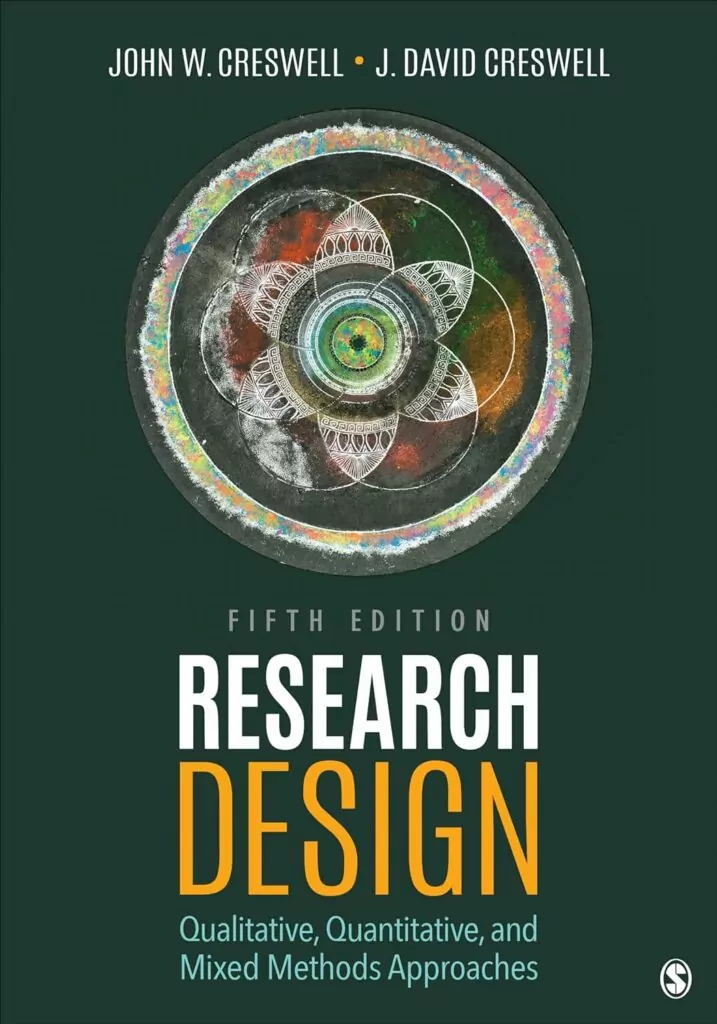
This widely recognized book offers a comprehensive study of qualitative, quantitative, and mixed research methodologies. Its distinguishing feature is its juxtaposition of all three research designs, making it a valuable resource for both new and experienced researchers. The authors provide a meticulous guide that starts with a fundamental understanding of philosophical suppositions, essential aspects of the research process, literature review, theory application in research, and the significance of writing and ethics in academic inquiry.
The updated edition includes a detailed discussion on research proposal design and research study steps. It sheds light on the positioning of epistemological and ontological views in relation to the selected research question and methodology. It also delves into the transformative worldview and features expanded insights into case studies, participatory action research, visual methods, and action research in mixed methods.
2. Quantitative Research in Education: A Primer , by Wayne K. Hoy and Curt M. Adams
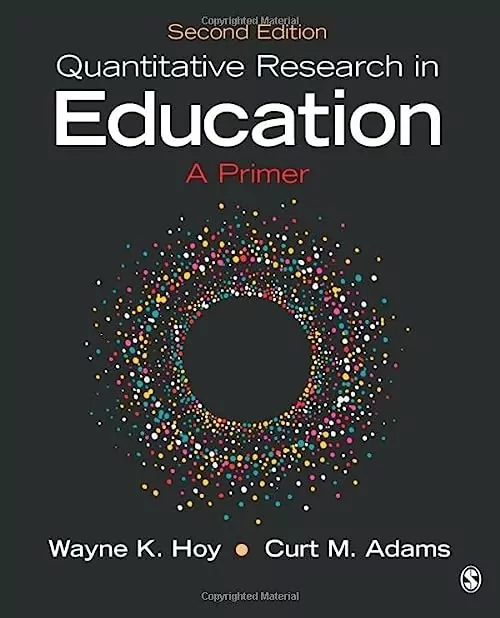
This book is a practical guide to help you with your quantitative research. The authors first introduce readers to the nature of research and science, before presenting the meaning of concepts and research problems. They aim to dispel the notion that quantitative research is overly difficult, too theoretical, and lacks practicality.
The book is rich with concrete examples and illustrations, and emphasizes conceptual understanding and the practical use of quantitative methods while teaching strategies for developing original research hypotheses.
3. Quantitative and Statistical Research Methods , by William E. Martin and Krista D. Bridgmon
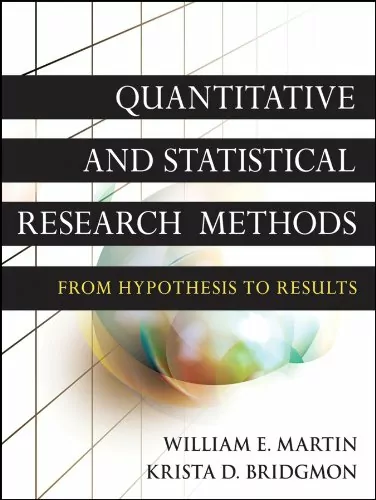
This user-friendly textbook helps students to understand and apply procedural steps in carrying out quantitative studies. It explains statistics while guiding readers through the steps of the hypothesis-testing process, from hypothesis to results.
The book offers a hands-on resource for each chapter, covering a single research problem and providing directions for implementing the research method from start to finish. It also features a Research Analysis and Interpretation Guide to help students analyze research articles.
4. Quantitative Research Methods for Communication , by Jason S. Wrench, Candice Thomas-Maddox, and Virginia Peck Richmond
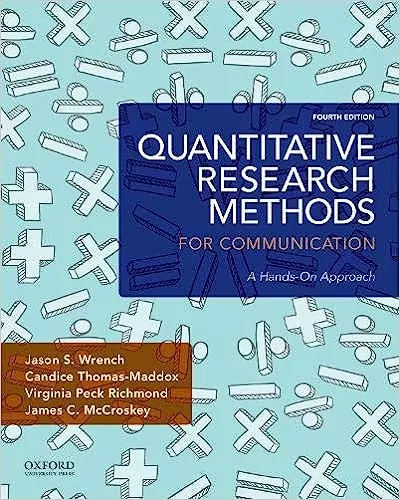
This book provides a relevant and accessible guide to quantitative research in the field of communication. The authors encourage students to take an active role in the learning process, equipping them with the tools needed to locate, conduct, collect, and present their research.
The authors use real communication studies and data sets to make communication research relatable for students. The text features chapter objectives, case studies, data sheets, and key terms throughout to facilitate learning.
Related: Books on Mixed Methods Research
5. Doing Survey Research: A Guide to Quantitative Methods , by Peter M. Nardi
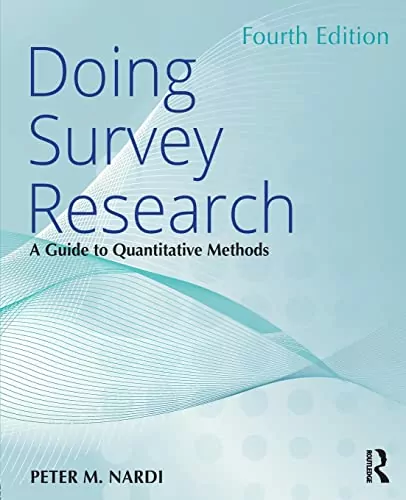
This book is a practical guide for those who want to learn how to conduct quantitative studies, either for an undergraduate project, a graduate-level thesis, or a survey that an employer may require. The book prepares beginners to conduct their own survey research, write up the results, and understand and critically interpret other people’s research.
6. Quantitative Methods for the Social Sciences , by Daniel Stockemer
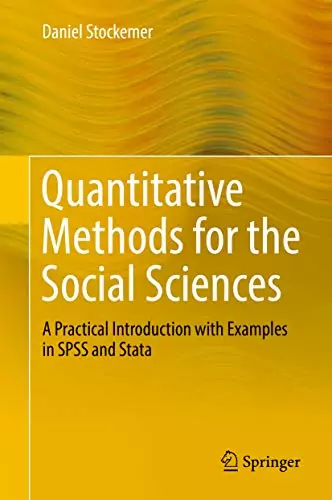
This textbook provides an essential introduction to survey research and quantitative methods. The book guides students through the various steps of the survey research process and helps them apply those steps toward a real example.
More specifically, the book introduces students to the importance of survey research, preparing a survey, conducting a survey, and analyzing a survey.
Students are shown how to create their own questionnaire, achieve empirical findings, and use the data to test their hypotheses in a bivariate and multivariate realm. Additionally, the book explains the theory, rationale, and mathematical foundations of these tests, and provides instructions on how to conduct the tests in SPSS and Stata.
7. Quantitative Research Methods: From Theory To Publication , by Dr. Nicholas Harkiolakis
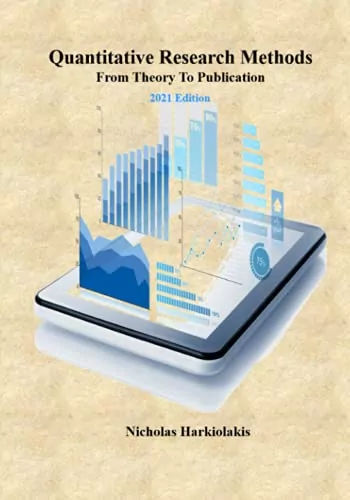
This book covers the vast majority of quantitative methods found in social sciences research. The author designed the book based on his years of experience teaching quantitative methods courses for graduate programs in Europe and the USA. The book is intended for readers who don’t have a background in quantitative research.
All concepts presented in this book are defined and introduced, and alternative and overlapping expressions and keywords used in quantitative research are presented to enhance the reader’s understanding.
The book includes examples that are easily replicated in spreadsheets like Excel, and provides commands for executing the various methods for SPSS in footnotes. The book’s website provides additional material for executing the methods discussed, as well as all book images in higher resolution and links to other sources online.
8. Quantitative Research for the Qualitative Researcher , by Laura M. O′Dwyer and James A. Bernauer
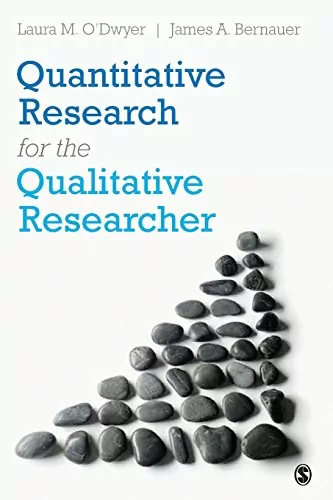
This book underlines the complementary nature of quantitative and qualitative research and elucidates the fundamental structure and purposes of design, measurement, and statistics within the framework of a research report, including a dissertation.
The text encourages the reader to perceive quantitative methodology as a process for systematically discovering new knowledge that can help describe, explain, and predict the world around us.
Final thoughts
Wrapping up this compilation of insightful reads on quantitative research, it’s clear that each of these books brings something unique to the table, making them indispensable resources for researchers at various stages of their careers. From the foundational understanding of quantitative methods to advanced statistical analysis, these books collectively cover a spectrum of topics that are vital for conducting robust and meaningful research. The practical advice, real-life examples, and step-by-step guides provided across these texts are designed to demystify the world of quantitative research, making it more accessible and less daunting, regardless of your level of expertise.
Related Posts
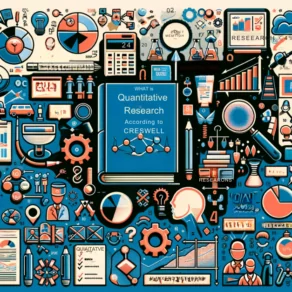
Meet Med Kharbach, PhD
Dr. Med Kharbach is an influential voice in the global educational landscape, with an extensive background in educational studies and a decade-long experience as a K-12 teacher. Holding a Ph.D. from Mount Saint Vincent University in Halifax, Canada, he brings a unique perspective to the educational world by integrating his profound academic knowledge with his hands-on teaching experience. Dr. Kharbach's academic pursuits encompass curriculum studies, discourse analysis, language learning/teaching, language and identity, emerging literacies, educational technology, and research methodologies. His work has been presented at numerous national and international conferences and published in various esteemed academic journals.

IMAGES
COMMENTS
Qualitative Research: A Guide to Design and Implementation, by Sharan B. Merriam and Elizabeth J. Tisdell, 4th edition, is one of the best books available because it focuses on action research, mixed methods, online data sources, and some of the latest technology that people can use to complete their projects.
We have compiled a list of the Best Reference Books on Design and Analysis of Experiments, which are used by students of top universities, and colleges. This will help you choose the right book depending on if you are a beginner or an expert. ... "Design of Experiments: Statistical Principles of Research Design and Analysis" Book Review ...
This book: Provides end-to-end guidance on the entire research design and analysis process Teaches readers how to both conduct their own research and evaluate the research of others Offers a clear, concise introduction to fundamental topics ideal for both reference and general education functions Presents information derived from the author's ...
Best Sellers in Research Reference Books #1. A Manual for Writers of Research Papers, Theses, and Dissertations, Ninth Edition: Chicago Style for Students and Researchers (Chicago Guides to Writing, Editing, and Publishing) ... Practical Research: Planning and Design. Paul Leedy.
Research Design: Quantitative, Qualitative, Mixed Methods, Arts-Based, and Community-Based Participatory Research Approaches ... Applied Social Research Methods (16 books) | by Joseph A. Maxwell | Jun 8, 2012. 4.7 out of 5 stars. 342. Paperback. ... Nursing Research & Theory; Research Reference Books; Kindle Store; Politics & Social Sciences ...
12 Good Books on How to Write and Publish Research Papers; Books on How to Write a Literature Review; Best Research Methodology Books. Here are some of the best research methodology books out there: 1-Research Design: Qualitative, Quantitative, and Mixed Methods Approaches, by John W. Creswell
-- Rob Published on September 25, 2024 A Clear and Practical Guide to Research Design - "Research Design Simplified" is an excellent resource for students, researchers, and professionals who want to understand the fundamentals of research design in an easy-to-follow manner. The book breaks down complex concepts and methodologies into clear ...
Books on research can be an invaluable resource to Ph.D. students. These will help you with researching books, improving your planning, and help you to identify the most professional dissertation writers. If you would like to learn more about the best research books for Ph.D. students, then the following article will be your guide. 1.
For those of you interested in qualitative research, check out my other post entitled best books on qualitative research.. 1. Research Design: Qualitative, Quantitative, and Mixed Methods Approaches, by John W. Creswell and J. David Creswell
The Sixth Edition of the bestselling Research Design: Qualitative, Quantitative, and Mixed Methods Approaches provides clear and concise instruction for designing research projects or developing research proposals. This user-friendly text walks readers through research methods, from reviewing the literature to writing a research question and stating a hypothesis to designing the study.